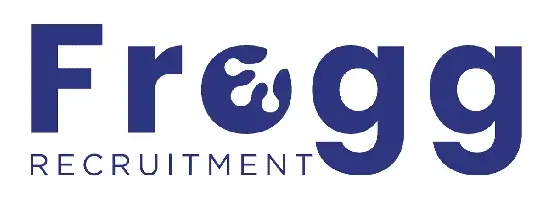Tag: cv
-

10 Red Flags on a CV That...
Continue Reading10 Red Flags on a CV That Employers look for
A recruiter will review a CV before determining if the candidate is a good fit or not. As a result, they have mastered the skill and are fully aware of their surroundings. On the one hand, they seek out precise keywords and a format that is simple to understand. On the other hand, they are searching for errors and other significant warning signs. These errors are detrimental to your career but making them on your resume can be particularly harmful. Joining a company that embraces Employer Branding is helpful. Let’s take a look at 10 red flags that employers look for.
How to address these red flags head-on to increase your chances of getting an interview is provided below.
An unprofessional email address
Your email address is at the top of the page and glaringly obvious to the recruiter/employer. Warning sign number one is – an unprofessional email address. The first red flag is an unprofessional email address. You ought to have a straightforward and expert email address. If for some reason you don’t, setting it up requires a few minutes. Use your last name and first initial or first and last name when creating your professional email address.
Poor formatting
Poorly structured resumes are more difficult to read and make it difficult for recruiters to discover important information. It’s not just an issue of appearances. Even if you’re a good fit, poor formatting may result in problems with applicant tracking systems (ATS). Poor formatting on your resume, including glaring errors, shows that you didn’t put much thought or work into it. This may make a potential employer question if you’ll put in just as little effort if you land the job. This also depends in part on you and in certain cases on the preferences of the recruiter. Use a free CV template to get started.
Unexplained employment gaps
Unemployment gaps are a standalone warning flag, but gaps in employment without justifications make it more obvious. Your employment history may contain gaps for a variety of reasons. Maybe you were dealing with health issues, taking care of a family member, or you just decided to take a career vacation. Whatever the cause, be as truthful as you can about your whereabouts and your activities. Don’t go too personal, please. The minute particulars are not required. Your employment history should be presented in your cover letter with a precise and succinct explanation. Perhaps during your time off, you gained some crucial new knowledge or encountered situations that were pertinent. You might even go into more detail about how this has made you better at your job.
Lack of career progression
Employers seek candidates who desire to prosper and advance with the business. Your resume should demonstrate how your career has advanced. When you have been inactive for too long, you may wonder why. A candidate’s irregular career path or absence thereof may have been due to a variety of legitimate factors. Candidates who frequently change jobs or resign from them give the impression that they lack commitment and loyalty.
Wording mistakes
The errors in your resume reveal a lack of attention to detail. Although it might seem obvious, you’d be amazed at how many people get this wrong. These grammatical errors are obvious from a distance. Consider it from the perspective of the employer. Your best work should be highlighted on your CV. If it’s riddled with errors, you’re conveying the wrong idea. Hint: Have your resume edited by at least two people. Then, before submitting your application, make sure to proofread it multiple times.
Job hopping
Job hopping, which is described as regularly changing employers, typically has a bad connotation. These days, employers look for more than simply experience. They prize flexibility, a thirst for knowledge, and a variety of talents. Each hop could stand for your desire for development and dedication to lifelong study. You are moving toward bettering yourself, not away from, anything.
A red flag on your resume will almost always be raised by brief stays and unexpected departures. Your CV shouldn’t shout, “I’m probably going to leave as soon as my training is finished,” because employers prefer workers who are in it for the long haul. As a jobseeker, you should always research companies that believe in company values.
Too much (or too little) information
When it comes to resumes, more isn’t necessarily better. The first impression you want to give is not one of being out of touch with professional standards, which is what happens when you provide the incorrect information.
Too many personal details make you appear unprofessional and increase your vulnerability to discrimination. On the other side, leaving out vital facts like your contact information makes you appear unprofessional and negligent and makes it harder for employers to contact you. Including your complete street address on your CV won’t likely prompt recruiters to throw it away. However, they will be searching for other signs of professionalism (or a lack thereof). If you’re still not sure where the fine line between too little or too much information is, HOW TO WRITE A CV.
Underscoring Results While Overemphasizing Responsibilities
It might be challenging to succinctly express your professional abilities in a way that sets you apart from the competition. Candidates frequently wind up overemphasizing their duties, which comes out as conceited. This might turn off employers.
Even though you are a renowned leader or a forward-thinking thinker, those statements ought to be made about you rather than by you. Do not assert any obligations or make any representations about them that cannot be supported by facts. Include a former boss or supervisor who can attest to your accomplishments as a reference if you can.
Lack of Measurable Successes
If you don’t quantify your accomplishments in previous positions, potential employers might suspect that you’re lying on your CV. It’s critical to show the results efforts have yielded in addition to making sure you get credited for your contributions.
Concentrate on accomplishments that meet the needs of the recruiter and highlight how you delivered the intended results for these efforts. Adding percentages or numbers within predefined times is an excellent way to accomplish this. Positions in sales and marketing are particularly pertinent to this.
Skills that Are No Longer Valuable
The use of general skills like “Microsoft Word” or “Excel” in your CV shows that you might not have any more in-demand abilities. Since you lack the requisite abilities or knowledge, it suggests that you are not a good fit for the position.
To help employers rapidly decide whether you have the necessary credentials, try providing 5 to 10 specific and pertinent talents. Make sure your CV is targeted to the position you’re seeking and highlights the most significant elements of your background, skills, and expertise.
In conclusion, the next time you think of applying for a job, revise these CV red flags, and proofread your application before applying. For more content like this, follow our social pages on Facebook, LinkedIn, and Instagram.
-

How to write a CV/Resume
Continue ReadingHow to write a professional CV/Resume
You will find insightful information, tips, and guidance on how to write a CV/Resume in the article below. In today’s competitive job market, it’s essential to present a tactful and well-outlined resume. Are you looking for a FREE CV TEMPLATE?
Job Seekers should know how to apply to jobs they qualify for in the sense of requirements and job duties. Job seekers should read the job advertisement carefully and only apply if they are a match.
Know what a good CV entails and ensure your CV/resume is up to par. With the correct knowledge as to what a CV consists of, nothing can stop you from making one that stands out from the crowd. Click on this link to create your own CV
What to write in your CV (Curriculum Vitae) also known as a Resume.
Your CV, or resume outlines your qualifications to recruiters and prospective employers. This document includes details information about your persona, and professional background, education, accomplishments, and skills selling yourself as the most suitable candidate. It contains details about your persona, professional history, educational background, accomplishments, and skills. Click here to view this article on LINKEDIN
The steps below will serve as a guideline regarding how to write a CV/resume:
Personal information
Personal information includes your name, surname, date of birth, in addition to languages that you speak and your contact information such as your mobile number and email address so that employers who you are and how to reach you. Below your personal information, include a brief summary outlining your career and introducing yourself to the recruiter or employer. This is ultimately a very condensed version of what your cover letter would say.
Education
Ensure that you list your educational history, both secondary and tertiary on your CV. Education listed on your CV is always listed in reverse chronological order with your most recent educational qualifications first. Should your current qualification be a completed degree it will be listed first and secondary education would be the last high school you attended and graduated from. Should you be in the process of pursuing another qualification of sorts, that will be listed above your completed qualifications.
Relevant skills
Under the skills section of your CV, list any potential skills that apply to the potential job. This can be any skills that you have acquired acquired outside of your current or previous employment. Examples are software proficiencies like Microsoft Word, Excel, and PowerPoint etc. These are considered as part of the prerequisites or otherwise stated as minimum requirements. Try to include skills that relate to the job description to make yourself a more desirable candidate.
Attributes
A personality trait known as an attribute can enhance your ability to perform within a team or an as individual in a working environment. It is seen as a quality or feature regarded one’s character. It works to describe you as an individual who is passionate in sales and marketing, dedicated or loyal. Its works describe your strengths. It can also describe functional words like being strong in management, people skills, analytical, or technical aligned.
Employment history
It is important to detail your current employment and previous employment history so your prospective employer can see your career path and this is what determines whether you are fit for the business of your prospective employer. This can include; full-time and part-time employment, internships, research projects such as WIL (Will Integrated Learning), lab work, volunteer work, and/or field experience.
Employment history is also consistently listed in reverse chronological order, being your current or last position first, and is almost always listed in bullet point format. Here, you will list the title of the work, name and location of your current/previous place of employment. Below these titles, you will list your job responsibilities performed.
References
References are your former employers who you provide the contact information of so that they may attest to your character, abilities, and work performance. Recruiters use your references to double-check what you’ve written on your CV. Therefore, it is of utmost importance that you are honest as this reflects as part of your personality, character, and values.
If you want to find our more about what we do as one of the top staffing agencies, view Our Expertise. Feel free to follow us on our social pages Facebook, LinkedIn, Instagram
